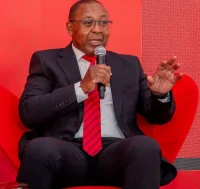Chances are that when you buy a local newspaper, you are interested in being in the loop on the country’s politics and current affairs but flipping through the pages of a local daily, any hawk eyed Kenyan will be alarmed by the number of auction notices placed in what is supposed to be an editorial publication, a stark indicator of the country’s struggling economy.
The mantra, It’s nothing personal, it’s just business is common in the business world but Kenyan auctioneers must have memorised it as of late, they are increasingly being summoned by lenders to recover funds from defaulting borrowers.
Kenyans who made attempts to improve their livelihoods are facing sleepless nights with auctioneers circling in ready to mortgage their property which might leave the borrowers in worse situations than they were in or worse still, sink them into negative territory.
Land, commercial buildings, residential property attached by the borrowers as collateral have become mainstays in the back pages of newspapers as auctioneers fish for buyers.
But that is the problem, the three types of property ranked among types of assets that Kenyans treasure the most by consultancy firm, Enwealth Financial Services are not attracting buyers despite being floated at competitive market prices.
Six pages in the May 27, 2019 edition of The Nation newspaper were reserved for public auction notices.
On Friday last week, the media house hosted auctioneers at Nation Centre seeking to firm up engagements with them.
NMG is estimated to rake in Ksh100 million from auction placements per month and Ksh500,000 per page.
Tough economy
According to the 2018 Economic Survey report compiled by the Kenya National Bureau of Statistics (KNBS), the country’s Gross Domestic Product (GDP) grew by 6.3% last year compared to 4.9% in 2017, a statistic which economists have dismissed as being ‘unreliable and on the higher side’.
{Read: Gamblers hit as KRA gets nod to collect 20% tax on betting wins}
What’s more, KNBS’ report states that advances to deposits ratio declined from 83.5% in December 2017 to 78.4% in December 2018.
“This was due to commercial banks opting for less risky lending in the form of government securities,” reads the report.
Speaking during the Kenya Association of Manufacturers’ (KAM) Changamka Shopping Festival at the Kasarani Stadium on April 3, Equity Bank Managing Director Polycarp Igathe faulted the banking industry for tightening the purse strings on middle and low income earners who run Small and Medium Enterprises (SMEs) in the country.
{See also: More parts of the brain control and link depression and pain}
He lamented that money inst circulating in the Kenyan economy.
“If money is not circulating within the economy that basically means that no jobs will be created. Every time I interact with leaders in the banking industry we come to the conclusion that if no one accesses credit, it has a spiral effect on the entire economy,” said the former Nairobi Deputy Governor.
With the current credit squeeze, defaulting borrowers have been left with no option but to watch their property being put up for sale.








![Parliament in a past session. [Photo/Parliament of Kenya/Facebook]](https://businesstoday.co.ke/wp-content/uploads/2026/02/Parliament-Kenya-200x143.webp)



Leave a comment